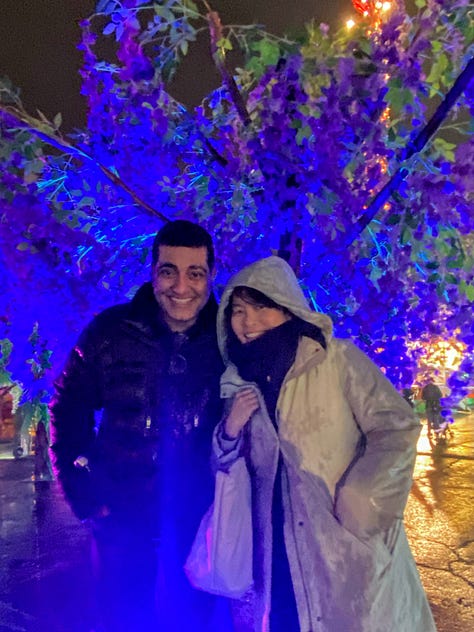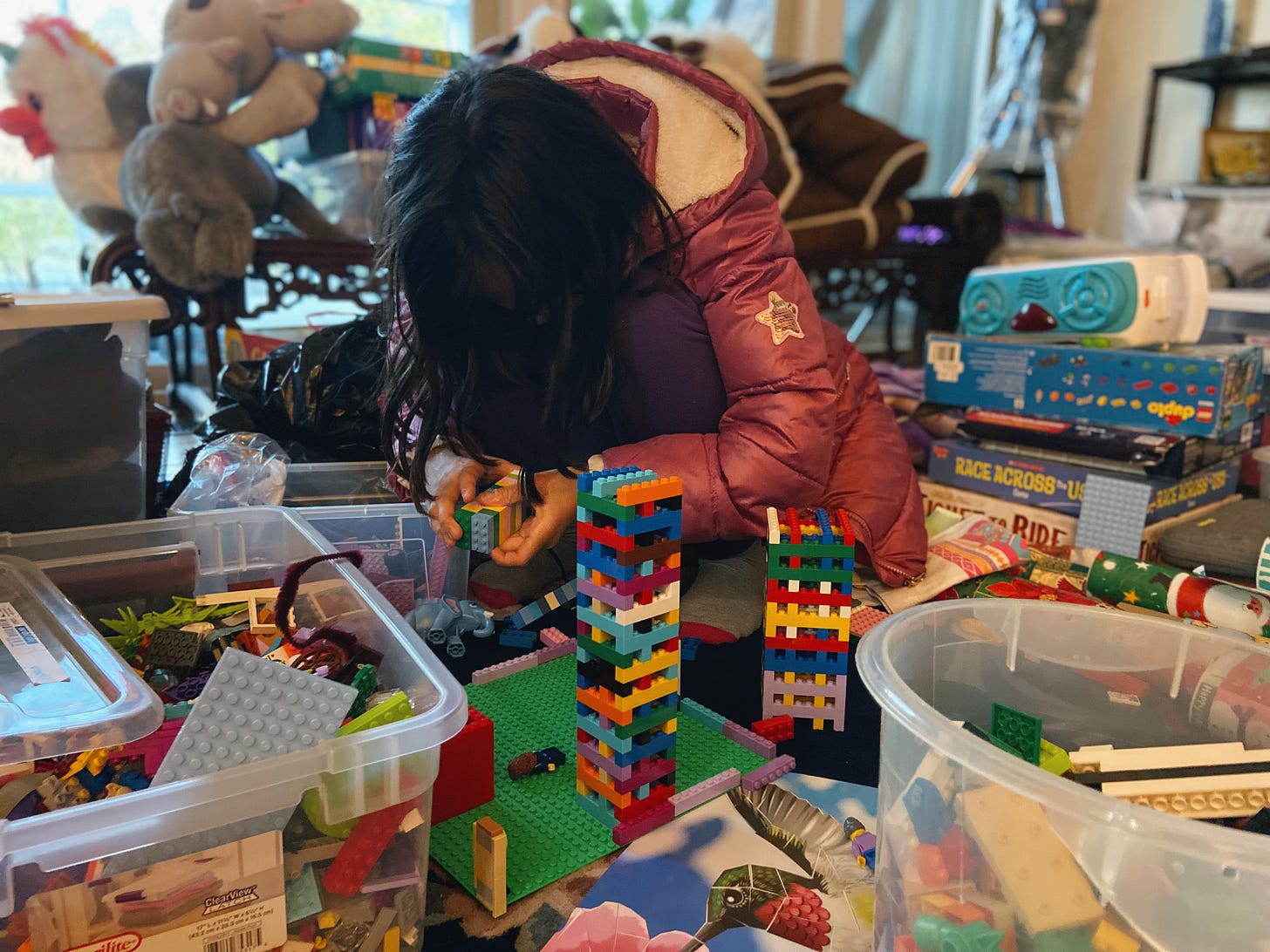Time management in the new year
4000 weeks! There's no time to waste.
Hello, friends.
It’s that time of year when we look back and we look ahead, and sometimes we look inside ourselves too. In that spirit, I am currently reading “Four Thousand Weeks: Time Management for Mortals” by British author and columnist for The Guardian Oliver Burkeman, to learn how I can manage my remaining mortal time better.
4000 weeks is approximately the number of weeks you get on earth if you live to 80 years old. Numbered in weeks, it doesn’t sound like much time, does it? (And it puts me in mind of Tim Urban’s Wait but Why various visualizations of a human lifespan. The visualization that’s stayed with me since I first saw these graphics years ago is the last one, about the time Urban has left with his parents now he’s an adult. Seeing it laid out so starkly was sobering.)



The subtitle of the book—“Time Management for Mortals”—gives a clue as to the kind of time management we are talking about here: this is not another list of productivity hacks, but a guide to managing the time we have on earth optimally, for the things we actually care about.
But just identifying what is important to us doesn’t immediately realign our priorities. What we say is important to us is often not what we actually give most attention to, and it is what we give our attention to, day in and day out, that makes our priorities.
Even commentators who spend a lot of time fretting about the modern-day “crisis of distraction” rarely seem to grasp the full implications of this. For example, you hear it said that attention is a “finite resource”…to describe attention as a “resource” is to subtly misconstrue its centrality in our lives. Most other resources on which we rely as individuals—such as food, money, and electricity—are things that facilitate life, and in some cases it’s possible to live without them, at least for a while. Attention, on the other hand, just is life: your experience of being alive consists of nothing other than the sum of everything to which you pay attention. At the end of your life, looking back, whatever compelled your attention from moment to moment is simply what your life will have been. So when you pay attention to something you don’t especially value, it’s not an exaggeration to say that you’re paying with your life.
—Four Thousand Weeks: Time Management for Mortals
In real life, it is very hard to align what you say you prioritize with what your attention reveals you prioritize. The small and big hurdles in life get in the way, from scrambling to get winter gear ready for your daughter to start nature school (me, right now) to working long hours at a job you don’t like so you can give your family a nice middle-class lifestyle. Those are not the things you want to be doing, those are not the things you want to be paying attention to, but they end up easily taking over because they can. Because we let them.
This is a timely reminder for me. I derive a lot of satisfaction from crossing completed tasks off lists; it’s a good day when I plot an efficient route that hits all the errands I need to hit, and then it all goes according to plan. As I rush around during this holiday visit to finish everything on our to-do list, I endeavor to keep in mind that the things I can tick off the list (satisfying as that is) are not the big picture. The big picture is everything else, all the downtime that is spent less “productively”: having meals, opening presents, or even just puttering around doing nothing with family.
So in the new year, rather than improving my ability to do more of the things, and to do them better and faster, I aim to consciously decide what to give my attention to at all.
Our time at home is quickly coming to an end. We will soon move on, and up the rain-soaked Interstate-5 corridor. Some of our family and friends have promised to visit us up in Vancouver, and that will be a nice thing to look forward to. I’m striving not to look forward excessively though, as I tend to do, and focus more on the here and now. To pay attention to what I’m paying attention to. This is challenging for me. Maybe if I keep it simple and ask myself regularly, “What am I giving my attention to now? Does this match my top priorities?” I’ll be able to course correct before I go too far astray.
4000 weeks! There’s no time to waste. If I live until 80, I have fewer than 1800 weeks left in my life. I have to work on making them count more, paying better attention from moment to moment.
I hope you have a happy and attentive 2023, friends.
Pretty Good Things
Wait but Why
After creating the sobering visualizations of lifespan in terms of time with loved ones, here are Tim Urban’s conclusions:
1) Living in the same place as the people you love matters. I probably have 10X the time left with the people who live in my city as I do with the people who live somewhere else.
2) Priorities matter. Your remaining face time with any person depends largely on where that person falls on your list of life priorities. Make sure this list is set by you—not by unconscious inertia.
3) Quality time matters. If you’re in your last 10% of time with someone you love, keep that fact in the front of your mind when you’re with them and treat that time as what it actually is: precious.
—Wait but Why
Your word of the year
I subscribe to fellow Substack writer Sarah Styf’s newsletter, and I like her latest post about choosing a word to approach each new year, rather than making New Year’s resolutions. Her word for 2023 is “forward.” Given that I’d like to hone in on what matters to me, my word for the year is “focus.” What is yours?





